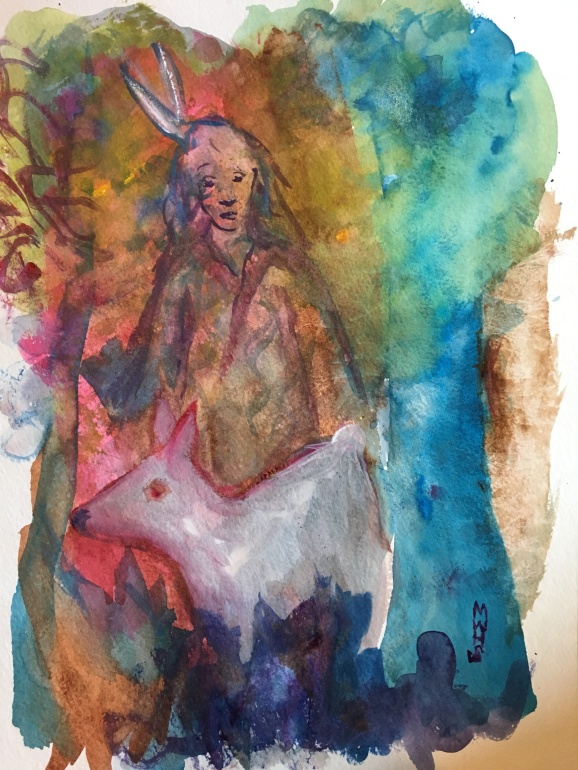夜
Night (for Ruan Ji)
日從東溟轉, 夜向西海沉.
From the east the day comes spinning, revolving towards
the strange west, where descending evening colors the ocean’s every drop.
羣物各已息, 衆星燦然森.
Every living thing is resting, or holding its breath, it’s hard to tell
on nights when the toad swallows the moon –
蝦蟇將食月, 魑魅爭出陰.
Starlight glinting from every pine needle – or is it a million swords
unsheathed, our demons striving to materialize out of the dark cluster?
阮籍獨不寐, 徘徊起彈琴.
Only you, my friend, sleepless, pacing in your room, can sense it; only you
with a word, or a wave across your zither, can turn the knife’s edge back into night.
*
[Note: This is the most recent draft of a work based on a poem of Mei Yao-ch’en (1002-1060), about whom I have written many poems on this blog. The first version can be found here. The three between that draft and this one were too incomplete to share, so I’m sparing you those.
My continuing thanks to Chen Zhang, Chinese Literary Preceptor at Harvard University, for her explication and patience. She not only provided a word-for-word translation but important historical and critical perspective that helped me locate this work closer to the heart of Mei’s writing; she also provided her own enthusiasm for this specific poem. Sitting alone with a cup of coffee a few days ago in a Panera Bread with a marvelous view of the twilight saturating the Blue Ridge, I found a way into this poem through the voice of the poet I have appropriated/channeled/imitated in nearly forty other poems that were not attempting to be translations. That voice I was so used to writing in already helped me re-imagine this most recent version, which I think may be closer to a true translation of my friend Sheng-yu’s work. Again, the idea to approach the poem that way came from Chen, who pinpointed so well the difference between interpretation and translation in my many amateur’s questions.
Ruan Ji (210 – 263) was a poet Mei admired. He was also, some might say, an accomplished ne’er-do-well born into a prominent family who was unafraid of leveraging that prominence and wealth to support his chosen vocation as a poet. Some stories about him include him staying drunk for over a month to avoid having to get married, and so impressing an elder in his family with his zither playing one evening that his reputation was upgraded to ne’er-do-well-who-plays-a-mean-zither,-and-that-has-gotta-mean-something. ]

